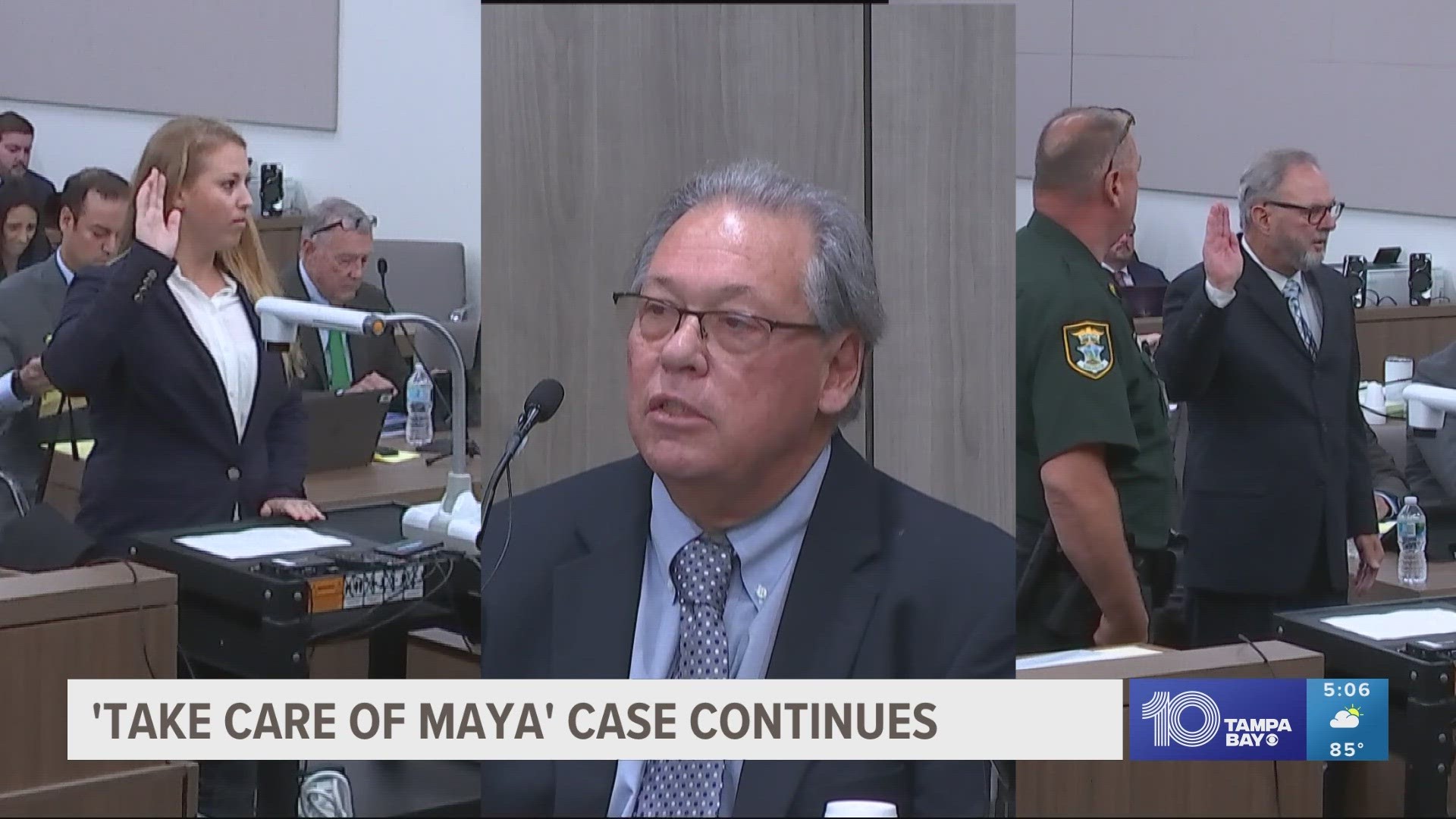SARASOTA COUNTY, Fla — The case at the center of the Netflix documentary "Take Care of Maya" continued to play out in court on Friday.
A Venice family is suing Johns Hopkins All Children's Hospital for alleged malpractice, false imprisonment and battery. The Kowalski family's lawsuit states that after accusing wife and mother, Beata Kowalski, of Munchausen by Proxy, the hospital kept them away from their daughter Maya who was 10 at the time.
The case has drawn attention to her diagnosis of Complex Regional Pain Syndrome and the impact of ketamine treatments on patients with the condition.
CRPS is a term that describes excessive and prolonged pain and inflammation in parts of the body.
All week, jurors heard witness testimonies from doctors and therapists, including those who treated Maya.
The experts painted a picture of what living with and treating CRPS looked like for different patients as well as what they saw when treating Maya. The condition often medically referred to as Reflex Sympathetic Dystrophy Syndrome, was described by one of the doctors as the 'the world's worst pain'.
In court Friday, a pediatric neurologist explained some potential concerns he had regarding Maya.
"There were some questions about whether or not she had an immune deficiency, which could be an underlying cause for her pain. I suggested that we might try IVIG, which she has been treated with previously and had some benefits," Dr. Carl R. Barr, a pediatric neurologist, explained.
Intravenous Immunoglobulin (IVIG) is a therapy treatment used for patients with antibody deficiencies, according to the American College of Rheumatology's website. Doctors would use a pool of immunoglobulins (antibodies) from the plasma of thousands of healthy donors to prepare it and administer it intravenously.
Also taking the stand was a physical therapist who was among the first to conduct an early physical assessment of Maya.
She spoke about her August 2015 observations and how she used various methods to get around Maya's pain during in-patient care
"She was in pain occasionally, she would writhe in pain, and just the fact that she was limited from doing the activities that a normal nine-year-old would want to participate in because she was nervous about experiencing increased discomfort," Dr. Marissa Higgens said.
Other pain condition-related experts across the country are following the case closely because of the spotlight it is putting on the condition.
"I think it's so much better to call them amplified pain. CRPS makes up about 25% in the cases that we have of amplified pain so it's a small percentage of that and we see hundreds a year with amplified pain," Dr. David Sherry said,
Sherry is a juvenile amplified pain specialist with the University of Pennsylvania who has also treated several cases of CRPS.
Ketamine, which is a general anesthetic, has also featured heavily in this case. It is often used as a sedative for minor surgery and in veterinary medicine as a tranquilizer. Most recently, it has been used as a treatment for chronic pain especially in opioid-dependent patients, according to the National Institute of Health.
At the time Maya's treatments started, ketamine was not approved for treating CRPS. Documents and court evidence showed that the Kowalski family sought that treatment in Mexico after one of Maya's doctors recommended trying it. The use of ketamine for Maya was reportedly part of the concern expressed by hospital staff who accused the family of overmedicating Maya with excessively high doses of ketamine.
Sherry said he's not an advocate of using ketamine in children as was done with Maya.
"Actually, it's a dissociative agent that's related to Angel Dust and PCP, and that's why some kids get usually hallucinations and things like that. As an anesthesia, it has a very appropriate use but these kids don't need anesthesia for their pain," he said.
Some of the expert testimony also raised several questions on cross-examination by defense attorneys as well as the jurors.
One focus was on a part of Higgins's notes that referred to barriers to discharging Maya at the time including "attitudes of family and self."
"What did you chart on Aug. 6, 2015, as a barrier to discharge?" Ethan Shapiro, an attorney at Johns Hopkins All Children's Hospital, asked.
"It appears I put attitude to family, attitude to self as co-morbidities, but these were links that carried over from other therapists as well," Higgens said.
During cross questioning by lead counsel Howard Hunter, Barr indicated that he had not made his own objective diagnosis of the patient but based on history and notes from previous examination by other physicians he assumed the diagnosis of CPRS and was treating that. When counsel pushed further with more questions, he conceded that he had not requested existing medical records on the patient from All Children's Hospital.
The Kowalski family is suing for more than $200 million for allegations including false imprisonment, battery, medical negligence and emotional distress. After facing accusations of child abuse and being prevented from contact with her daughter for nearly 90 days, Beata Kowalski took her life. The family blamed the hospital for her death and called their conduct extreme and outrageous.
According to the hospital, staff managed Maya's condition according to standard care and acted reasonably and in the patient's interest. They said the treatments sought by the patient's mother were dangerous and raised enough concern to be reported to the Department of Children and Welfare. They argue staff followed orders according to the law.
One of the witnesses who took the stand was another mom, Megan Boland, of Elizabeth City, North Carolina, whose son also suffered CRPS. She runs a non-profit that connects families dealing with similar conditions and spoke to Beata Kowolski the night before she died.
Court hearings would resume at 8:30 a.m. on Monday. Maya is expected to provide her own testimony next week.

